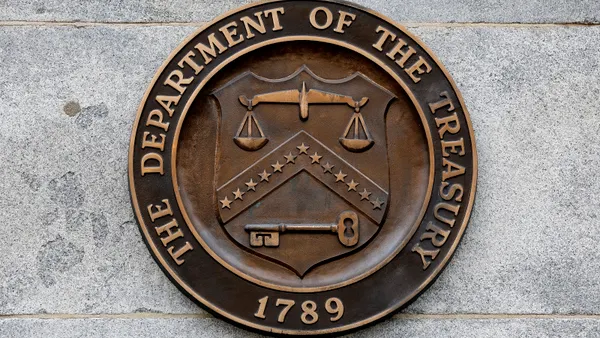Dive Brief:
- Cybersecurity and Infrastructure Security Agency Director Jen Easterly praised the efforts of the Joint Cyber Defense Collaborative (JCDC) following its one-year anniversary, saying in a blog post the public-private partnership has helped limit cyber risk at scale.
- JCDC helped federal agencies and private sector partners mitigate some major cybersecurity threats, Easterly said, including the Log4Shell crisis from December 2021; the development of the Shields Up campaign related to the Russia invasion of Ukraine; and the Daxin malware discovery from February.
- JCDC recently expanded to include industrial control partners. The change comes at a time when sophisticated malware threatens major critical infrastructure targets in the U.S. JCDC is also working to protect the nation’s election infrastructure from nation-state threats ahead of the November midterm elections.
Dive Insight:
The JCDC has brought together some of the nation’s top cyber, defense and national security bodies, including U.S. Cyber Command, the FBI, National Security Agency and CISA, to work closely with private industry and other organizations to help mitigate and respond to cyberthreats facing the U.S.
The old models of how the federal government worked with private industry no longer work under the new threat landscape, Easterly said.
“These new efforts show the flexibility and support of JCDC members to show their diverse and unique capabilities and expertise to the cyber ecosystem and to critical infrastructure,” Easterly wrote in the blog.
CISA released an elections toolkit through the JCDC, which is designed to help state and local officials assess their readiness to protect against phishing, malware and other threats. The kit was developed by CISA and the U.S. Election Assistance Commission.
“JCDC and CISA have been transformational with regards to how the information security community views the federal government’s interactions and understanding of cybersecurity,” said Allie Mellen, senior analyst, security and risk at Forrester, via email.
The federal government established JCDC following a series of catastrophic cybersecurity events, including the SolarWinds nation-state attack in 2020, the Colonial Pipeline ransomware attack in May 2021 and the Kaseya ransomware attack in July 2021. The spree of incidents exposed a significant gap between the U.S. government and private industry in their ability to rapidly share intelligence and sophisticated attacks from both criminal and advanced persistent threat actors operating in many cases on behalf of rival nations.














